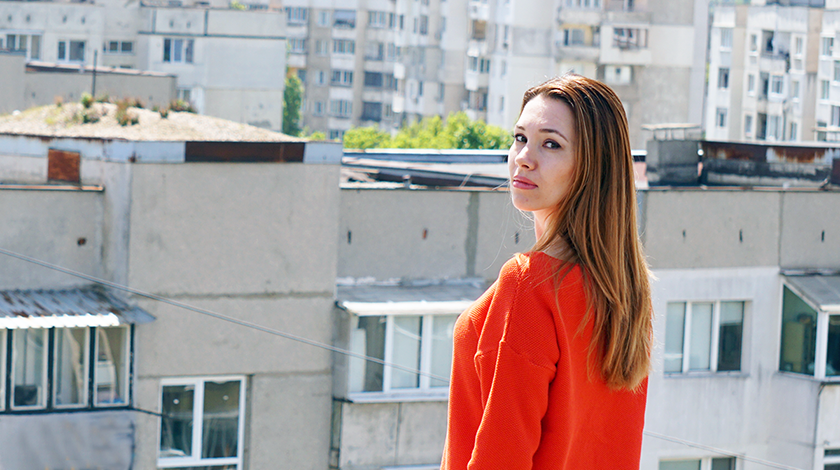
Osteodensitometry
Globally, one in three women and one in five men over the age of 50 are at risk of fracture due to osteoporosis.
In Bulgaria, between 20-25% of women and 15-16% of men over the age of 50 have osteoporosis.
About 46% of Bulgarians who are over 50 years of age have reduced bone mineral density.
Osteodensitometry
What is Osteoporosis?
Osteoporosis is a progressive skeletal disease characterized by decreased bone mass and structural changes in bone tissue that lead to increased fragility and a consequent risk of fractures. The process of bone loss and thinning of bone tissue occurs typically after the age of 40 years when new bone tissue does not form at the rate at which the old tissue is lost.
The osteoporosis progress is painless and progresses slowly and gradually, with no significant symptoms over the years, so patients learn about the disease only late in the process, or most often after a fracture. Both women and men suffer osteoporosis, but to men, the rate of bone loss is many times slower than that to women.
The significance of osteoporosis was made popular in 1994 when the World Health Organization (WHO) officially declared osteoporosis for disease rather than normal aging of the body. Osteoporosis is one of the most significant contemporary social problems.
What are the risk factors for osteoporosis?
Risk factors are associated with the menopause or early menopause, postmenopausal osteoporosis, which is due to the loss of ovarian function naturally or after hysterectomy. Other risk factors include diseases such as diabetes, hyperthyroidism, rheumatoid arthritis, chronic liver and kidney disease, leucosis, primary/secondary hypogonadism of men. Bone density may also affect long-term treatment with medications that damage the bone structure or improper diet.
This is due to inadequate dietary intake of calcium and vitamin D - low calcium intake leads to loss of bone and vitamin D - to reduced absorption by the intestine. Smoking is also disadvantageous, excessive consumption of coffee (over 5 cups a day), cooking salt, alcohol abuse, acute and chronic psycho-emotional stress - the adrenaline released during stress, extracts calcium from the bones and leads to their mineral impoverishment; this process can develop within weeks or even days. For bone health, it is important to observe sufficient motor activity. Osteoporosis also has a family history, as well as age-related - the so-called senile osteoporosis, occurring to women and men over the age of 70, related to changes in aging.
What is ultrasound Osteodensitometry?
Ultrasonic Osteodensitometry (QUS – quantitively ultrasound scan) is a non-invasive and painless examination. Ultrasound waves are used to measure bone density in different areas - most commonly in the heel area. Radiation is not used with this method. Ultrasound examination of hands and heel belongs to screening methods. With the help of this test, women and men at risk are identified. Further tests are being assigned to the final diagnosis. The so-called "T-score assesses bone density". T-score of -2.5 is described as osteoporosis, T-score of -1 to -2.5 suggests osteopenia or bone thinning, T-score of -1 is a normal result.
How is the examination going?
It is recommended on the examination day not to use deodorant, powder and other feet cosmetic products, as these may obscure and hamper the interpretation of the resulting image. During the examination, the doctor puts a small amount of ultrasound gel on the heel.
Osteodensitometry - contact us
To check the health of your bone system, book a consultation session with a highly qualified endocrinologist. Call us at +359 2 920 09 01
Video: Gynecological and mammographic prophylactic at Dr. Shterev Hospital
Prevention saves lives! This is the credo of the Preventive Medicine Sector at Dr. Shterev Hospital. To underline the importance of medical prevention for women’s health, we created an exclusive video in which we present essential aspects of gynecological and mammalogical prophylactic care. Watch the video to learn about the latest trends in female prophylaxis, and remember that your health is in your hands.

Osteodensitometry - resume
"Dr. Shterev Hospital” offers highly specialized gynecological examinations, consultations, diagnostics and treatment of various gynecological complaints and illnesses. To feel safe about your health, do not forget to check the condition of your bone system. We have the necessary equipment and expertise to offer you a highly functional bone density test - Osteodensitometry.
 Медицински комплекс „Д-р Щерев”
Медицински комплекс „Д-р Щерев”